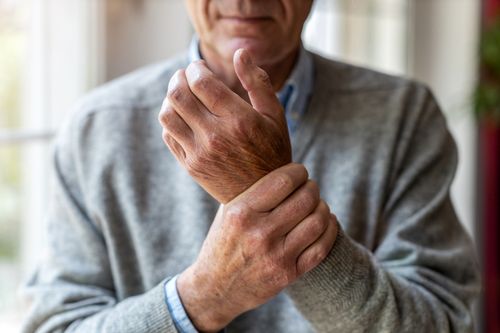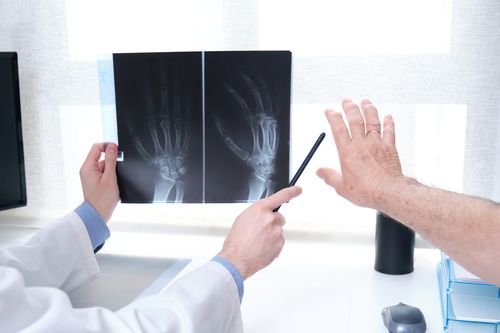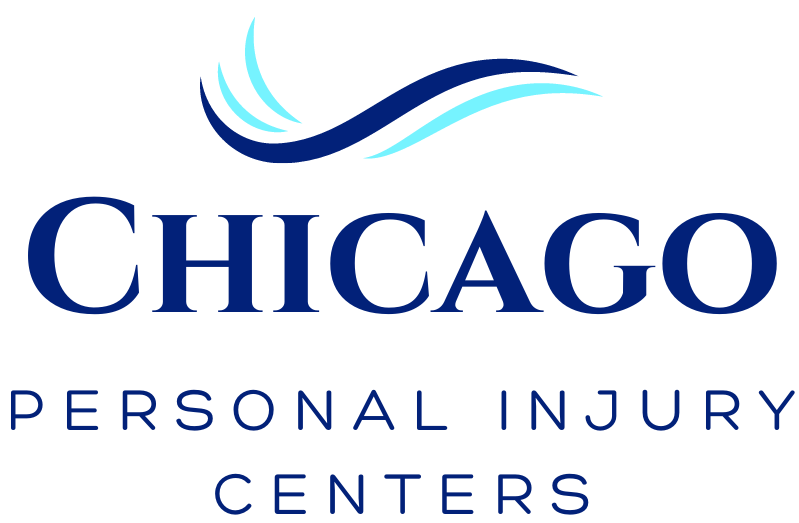You wake up one morning, and it hits you—a piercing stiffness in your knee that wasn’t there before, or perhaps a lingering, aching sensation in your hip following a recent fall. In most cases, this isn’t just a casual discomfort but a debilitating form of pain that infiltrates every aspect of your life.
At Chicago Personal Injury Center, we understand the struggles you’re going through and are committed to guiding you on a path to recovery. Benefit from our extensive range of services and personalized joint pain treatment options to alleviate your joint pain.
Make the choice to prioritize your health—contact us at (773) 482-5800 to schedule your consultation.
What Are Some of the Causes for Joint Pain?
Joint pain can arise from a variety of sources, making it crucial to understand its root cause for effective treatment. Let’s delve into some common culprits:
Injuries
Injuries are a common cause of joint pain due to the impact they can have on the structures within the joint. When an injury occurs, such as a sprain, strain, or fracture, it often results in damage to the surrounding ligaments, tendons, cartilage, or bones that make up the joint.
This damage can lead to inflammation, swelling, and instability in the joint, triggering pain signals from the affected area. Additionally, injuries can disrupt the smooth movement of the joint, causing further discomfort. Proper diagnosis and timely treatment of joint injuries are essential to manage pain, restore joint function, and prevent long-term complications.
- Auto Accidents – The impact of a car, motorcycle, or truck crash can significantly jolt your joints, resulting in pain, stiffness, and even more severe complications like dislocations.
- Slips and Falls – Slipping on an icy sidewalk or tripping over a misplaced object can lead to injuries like sprained or broken joints.
- Sports Injuries – Athletic activities come with a risk. Injuries like torn ligaments or cartilage can occur in high-impact sports such as football or basketball.
- Workplace Injuries – From repetitive motions like typing to heavy lifting, workplace conditions can contribute to joint pain and stress.
Arthritis
Arthritis is a prevalent cause of joint pain, characterized by inflammation and degeneration of the joint tissues. Osteoarthritis, the most common type, occurs as cartilage in the joints wears down over time, leading to bone-on-bone contact and painful friction.
Rheumatoid arthritis, an autoimmune condition, triggers the immune system to attack the synovium (lining) of the joints, causing inflammation and joint damage. These processes result in chronic pain, stiffness, and reduced mobility. Arthritis-related joint pain often worsens with age, but early diagnosis, medication, exercise, and lifestyle changes can help manage the discomfort and improve joint function.
- Osteoarthritis – Osteoarthritis is a degenerative condition affects millions and is characterized by the wearing down of cartilage that cushions joints.
- Rheumatoid Arthritis – An autoimmune disease, rheumatoid arthritis is when your immune system mistakenly targets the membranes surrounding your joints.
Overuse
Overuse is a frequent contributor to joint pain, especially in individuals who engage in repetitive or high-impact activities. When a joint is subjected to excessive and repetitive stress, the surrounding tissues, such as ligaments, tendons, and cartilage, may become irritated or damaged.
This can lead to conditions like tendinitis, bursitis, or stress fractures, causing localized pain in the affected joint. Overuse injuries are common among athletes and individuals with physically demanding occupations, emphasizing the importance of rest, proper technique, and gradual progression in physical activities to prevent joint pain and injury.
- Sports Related – Overexerting yourself in sports can result in conditions like tennis elbow or runner’s knee.
- Work Related – Continuous repetitive actions, such as using a mouse or keyboard, can lead to overuse injuries like carpal tunnel syndrome.
Degenerative Conditions
Degenerative conditions are a prevalent cause of joint pain, particularly among the aging population. These conditions, such as osteoarthritis, result from the gradual breakdown of joint cartilage and the wear-and-tear on joints over time.
As the protective cartilage diminishes, bones can rub against each other, leading to inflammation, pain, and reduced joint flexibility. Degenerative joint diseases often affect weight-bearing joints like the knees, hips, and spine, and their impact on daily life can be significant.
Effective management strategies for degenerative joint conditions may include lifestyle modifications, medications, physical therapy, and in some cases, surgical interventions to alleviate pain and improve joint function.
- Gout – An intensely painful form of arthritis, gout is caused by the accumulation of uric acid crystals in the joints.
- Infections – In rare cases, infections like septic arthritis can infect a joint, causing pain and swelling.
Lifestyle Factors
Lifestyle factors play a substantial role in joint pain development. Excessive weight or obesity can strain weight-bearing joints like the knees and hips, leading to chronic pain and an increased risk of conditions like osteoarthritis. Sedentary lifestyles can weaken the muscles that support joints, making them more vulnerable to injury and pain.
Poor dietary choices may contribute to inflammation and joint discomfort. Additionally, smoking and excessive alcohol consumption can hinder the body’s ability to repair joint damage. Adopting a healthy lifestyle that includes regular exercise, maintaining a balanced diet, and avoiding harmful habits can significantly reduce the risk of lifestyle-related joint pain and promote overall joint health.
- Obesity – Extra weight puts added pressure on weight-bearing joints, exacerbating wear and tear.
- Lack of Exercise – Lack of physical activity can lead to joint stiffness and muscle weakness, making you more susceptible to injuries.
Genetic Predisposition
Genetic predisposition can be a common underlying factor in joint pain, particularly in conditions like rheumatoid arthritis and certain types of osteoarthritis. Individuals with a family history of these conditions may inherit genetic markers that increase their susceptibility to joint problems.
While genetics alone may not cause joint pain, they can make a person more prone to developing joint disorders when combined with environmental factors or triggers. Understanding one’s genetic predisposition can be valuable in assessing the risk of joint issues and early intervention, as it allows for proactive measures to mitigate potential pain and manage joint health effectively.
What Are Some of the Symptoms of Joint Injury?
Identifying the symptoms is the first step toward successful treatment. Common signs include:
- Pain or tenderness
- Swelling
- Stiffness
- Limited range of motion
- Redness or warmth around the joint
- Crunching or popping sounds
Where Are Some of the Common Locations of Joint Injury?
Joints throughout the body can suffer injuries, but some locations are more prone than others:
- Knees: Commonly affected by sports injuries, arthritis, and degenerative conditions.
- Shoulders: Prone to rotator cuff tears and dislocations.
- Hips: Often subject to wear-and-tear due to age, as well as traumatic injuries like falls.
- Elbows: Vulnerable to conditions like tennis elbow and golfer’s elbow due to repetitive motion or strain.
- Wrists and Hands: Carpal tunnel syndrome and arthritis are common issues.
- Feet & Ankles: Can vary from sprains and other muscle injuries to neuropathy
What Are the Different Types of Treatments for Joint Pain?
Once a comprehensive diagnosis is established, a myriad of treatment options becomes available. At the Chicago Personal Injury Center, our multidisciplinary approach aims not merely to alleviate symptoms but to address the root cause of your pain for enduring relief. Let’s explore the suite of treatments we offer in greater detail:
Diagnosis and Medical Assessment
Before proceeding to any form of treatment, it’s crucial to pinpoint the underlying issue. A full medical assessment can involve an array of diagnostic methods:
- Imaging Tests: X-rays provide a visual landscape of your bones, while MRI scans offer a more detailed view that includes soft tissues.
- Lab Tests: Blood tests can rule out infections, while uric acid tests might be essential if gout is suspected.
- Physical Examination: Our healthcare professionals may also perform a manual examination to assess the range of motion, swelling, and other physical attributes of the affected joint.
Pain Management
Immediate pain relief often becomes a priority for those wrestling with acute or chronic joint pain. We offer a range of interventions to properly manage your pain, such as:
- Over-the-Counter Pain Relievers: Ibuprofen or acetaminophen can provide quick but temporary relief.
- Heat/Cold Therapy: Ice packs can reduce inflammation, while heat pads may relieve muscle tension around the affected joint.
- Prescription Medication: In more extreme cases, stronger pain relievers or muscle relaxants may be prescribed under close medical supervision.
Medication Management
For conditions requiring long-term medication, we offer comprehensive medication management services:
- Anti-Inflammatories: Medications like NSAIDs can manage inflammation.
- Corticosteroids: Useful in suppressing the immune response in conditions like rheumatoid arthritis.
- Specialized Treatments: Disease-modifying antirheumatic drugs (DMARDs) may be used for certain forms of arthritis to slow down disease progression.
Physical Therapy
Physical therapy remains a cornerstone of non-invasive treatment for joint pain. The focus is on:
- Strengthening Exercises: Building up the muscles around your joints can provide additional support and alleviate stress on the joint itself.
- Flexibility Movements: Gentle stretching exercises can improve your range of motion.
- Tailored Programs: Our expert physical therapists will design a program specific to your needs, helping to ensure the best possible outcomes.
Massage Therapy
Though generally a supplementary treatment, massage therapy can offer additional benefits:
- Muscle Relaxation: By focusing on tense muscles around the affected joint, massage can indirectly provide pain relief.
- Enhanced Blood Flow: Improved circulation can aid in quicker healing and recovery.
Injections
When other treatments aren’t enough, minimally invasive procedures, injections, can provide targeted relief:
- Corticosteroid Injections: These can reduce inflammation directly in the affected joint.
- Hyaluronic Acid Injections: Particularly useful for osteoarthritis, these injections supplement the natural joint fluid to improve function and reduce pain.
Chiropractic Care
Some find significant relief through chiropractic care, aimed at realigning the musculoskeletal system, thereby improving function and reducing pain.
Surgical Interventions
In extreme cases where conservative treatments fail, surgical options may be recommended:
- Joint Replacement: Involves replacing the damaged joint with an artificial one.
- Arthroscopic Surgery: A minimally invasive surgery used to diagnose and treat issues within a joint.
Understanding your options is the first step towards effective treatment. Our team at Chicago Personal Injury Center guides you through this complex journey, ensuring that you receive personalized, holistic care. Your well-being is our ultimate goal. Call us at (773) 482-5800 today to schedule your comprehensive medical assessment.
How Can I Prevent Further Joint Injury?
Prevention holds the key to safeguarding your joint health for the long haul. At the Chicago Personal Injury Center, we believe that preventing further injury is just as vital as treating existing conditions. Here’s a deeper look at some tried-and-true preventive strategies:
Regular Exercise
Consistent, moderate exercise goes a long way in maintaining joint health. By strengthening the muscles that surround your joints, you are essentially creating a natural “cushion” that absorbs stress and reduces wear and tear. But remember, consult your healthcare provider for an exercise regimen that’s tailored to your condition.
Weight Management
Extra pounds exert additional pressure on your weight-bearing joints, particularly your knees, hips, and lower back. By maintaining a healthy weight, you mitigate the risks of joint deterioration and pain. Dietary guidance and exercise are key components in weight management.
Proper Technique
Whether you’re lifting weights at the gym or merely picking up a grocery bag, the technique matters. Incorrect lifting and sudden twists can put undue stress on your joints, leading to potential injury. Always aim to use your strongest muscles and maintain a correct posture during any physical activity.
Wear Supportive Gear
Invest in quality, supportive gear tailored to your specific needs. Properly fitted shoes with good arch support can relieve stress from your knees and hips. Similarly, wrist guards, knee pads, and other protective equipment can minimize impact and reduce the risk of joint injury in sports or work environments.
Stretch and Warm-Up
Warming up your body before engaging in physical activities prepares your joints for the stress ahead. Simple stretching exercises increase blood flow to your muscles and can improve your overall flexibility, reducing the chances of injury.
Rest and Recuperation
Don’t underestimate the power of rest. Your body needs time to repair itself, and pushing through pain can lead to severe damage. If you experience unusual joint pain, consult a healthcare provider for an appropriate treatment and recovery plan.
Visit Chicago Personal Injury Center for the Best in Joint Pain Treatment
Living with joint pain can be a frustrating experience, but it doesn’t have to shape your life. At Chicago Personal Injury Center, we offer a range of comprehensive services to diagnose and treat your joint pain effectively. From medical assessments to surgical interventions, our multidisciplinary approach ensures that you receive the most appropriate and effective treatment tailored just for you.
By understanding the potential causes and symptoms, being aware of the vulnerable areas in your body, choosing the most effective treatment options, and employing preventative measures, you can get back to living your life, unhindered by joint pain. The first step in this journey to recovery is reaching out for professional help. We’re here when you’re ready. Call us at (773) 482-5800 to take that first, crucial step.


